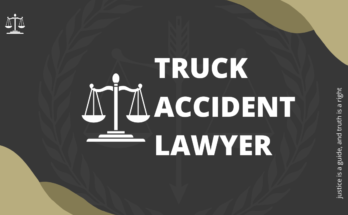Clear Your Name: Strategies for Removing Online Arrest Records and Protecting Your Privacy: In the digital age, it can be difficult to maintain your privacy online, especially when sensitive information like arrest records is easily accessible to anyone with an internet connection. Publishing this information can damage your reputation, affect your professional life, and harm your personal relationships. This article will explain strategies to help you remove online arrest records and protect your privacy.
Why are arrest records available online?
Arrest records are often considered public information, meaning they are accessible to almost anyone. While this transparency serves a purpose, such as ensuring the justice system is accountable, it also poses a privacy risk. Many websites collect and publish arrest records, including mugshot websites, background check services, and even government databases.
The Impact of Online Arrest Records on Your Life
Having an arrest record available online can be detrimental in many ways, even if you’ve never been convicted:
- Career Impact: Employers often run background checks on potential applicants. An online arrest record, even without a conviction, can hurt your chances of getting a job.
- Social Stigma: Friends, family and acquaintances can see these records, which can lead to convictions and strained relationships.
- Difficulty in finding housing: Landlords often run background checks on renters, and having a criminal record can make it more difficult to rent an apartment.
Given these consequences, it’s important to take proactive steps to remove or limit the online disclosure of your criminal record.
Steps to Clear Arrest Records Online
1. Contact the Website Hosting the Information
The first and easiest step is to contact the website hosting your arrest record. Many websites have a removal or delisting process, especially if the arrest did not result in a conviction or the case was dismissed. Here’s what to do:
- Check the deletion policy: Some websites offer the option to delete records, especially if you can prove the information is outdated or inaccurate.
- Submit a formal request: You may need to send an email or fill out an online form explaining your situation and requesting that your data be deleted. Be sure to provide documentation if necessary, such as proof of dismissal or deletion.
2. Seek Criminal Record Expungement or Sealing
Expunging or sealing your criminal record can be an effective way to clear your name. If your case qualifies, expungement means the criminal record will be completely erased, while sealing the criminal record will limit who can see the information. Here’s how to pursue these options:
- Check eligibility: Each state has different laws regarding expungement or sealing of criminal records. Some allow it for minor offenses or cases that did not result in a conviction, while others have more stringent criteria.
- Filing a motion: You must file a motion with the court where your case was heard. It’s often worth hiring an attorney to help you navigate the process and make sure everything is done correctly.
- Wait for approval: Once your request for expungement or sealing is approved, you can contact websites to remove your criminal record, providing proof that the information should no longer be publicly available.
3. Use an ID photo removal service
There are professional services that specialize in removing mugshots and arrest records from the internet. These services often have direct relationships with the websites that post arrest records, which allows them to expedite the removal process.
- Look for reputable services: Be careful when choosing a service, as not all of them are trustworthy. Look for reviews and ask for recommendations.
- Consider the cost: While these services can be effective, they usually require a fee. Make sure you understand the terms and conditions before committing.
4. Submit legal opinions
If a website refuses to remove your arrest record, you may need to take legal action. In some cases, it may be possible to send a cease and desist letter or take legal action, especially if the information is out of date, false or defamatory.
- Consult a lawyer: If you believe your arrest record is being published unlawfully, a lawyer specializing in privacy or defamation law can help you explore legal options.
- Take legal action if necessary: In extreme cases, litigation may be the only option. Although this can be costly and time-consuming, it may be necessary to protect your reputation.
5. Use Your Right to Be Forgotten
In some countries, individuals have the “right to be forgotten,” which allows them to request that their personal information be removed from search engines like Google. While this right is generally recognized in the European Union, other jurisdictions are increasingly adopting similar regulations.
- Submit a removal request to search engines: If your criminal record appears in search results, you can request its removal by filling out forms provided by major search engines.
- Understand the limitations: The right to be forgotten is not absolute, and search engines may reject your request if they determine that the information is in the public interest.
6. Create positive content to remove negative results
If it’s not possible to completely remove your criminal record, another effective strategy is to create positive content that can push negative search results down in rankings. Over time, this can help you regain control of your online presence.
- Start a blog: Write articles or posts about your expertise or interests. This can help generate positive content associated with your name.
- Engage in social media: Be active on professional social media platforms like LinkedIn. Create and share content that aligns with your personal brand or career goals.
- Optimize for SEO: Make sure your positive content is optimized for SEO so that it ranks higher in search results than negative or spammy links.
Maintaining your privacy after removal
After you have successfully removed or deleted your criminal record, it is important to take additional steps to protect your privacy in the future.
1. Regularly monitor your online presence
You should constantly monitor the information about you that is available online. Set up Google Alerts for your name and check in with yourself regularly to ensure that no new malicious content has been posted.
2. Use online reputation management tools
A variety of tools and services can help you manage your online reputation. These services alert you when new information about you is posted and can help you remove harmful content.
3. Be careful when sharing personal information
Be careful about the personal information you share online. Avoid sharing too much information on social media and consider adjusting your privacy settings to limit what others can see.
Conclusion
Posting your criminal record online may seem like an invasion of your privacy, but you don’t have to live with the consequences forever. By following these strategies—contacting websites, requesting removal, using photo removal services, and creating positive content—you can take control of your online reputation. Always remember to stay vigilant and proactive to protect your privacy and avoid future problems.



